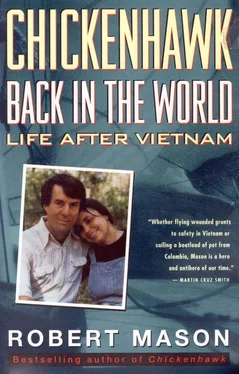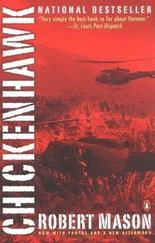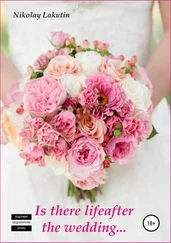Robert Mason - Chickenhawk - Back in the World - Life After Vietnam
Здесь есть возможность читать онлайн «Robert Mason - Chickenhawk - Back in the World - Life After Vietnam» весь текст электронной книги совершенно бесплатно (целиком полную версию без сокращений). В некоторых случаях можно слушать аудио, скачать через торрент в формате fb2 и присутствует краткое содержание. Год выпуска: 2013, Издательство: BookBaby, Жанр: Старинная литература, на английском языке. Описание произведения, (предисловие) а так же отзывы посетителей доступны на портале библиотеки ЛибКат.
- Название:Chickenhawk: Back in the World - Life After Vietnam
- Автор:
- Издательство:BookBaby
- Жанр:
- Год:2013
- ISBN:нет данных
- Рейтинг книги:3 / 5. Голосов: 1
-
Избранное:Добавить в избранное
- Отзывы:
-
Ваша оценка:
- 60
- 1
- 2
- 3
- 4
- 5
Chickenhawk: Back in the World - Life After Vietnam: краткое содержание, описание и аннотация
Предлагаем к чтению аннотацию, описание, краткое содержание или предисловие (зависит от того, что написал сам автор книги «Chickenhawk: Back in the World - Life After Vietnam»). Если вы не нашли необходимую информацию о книге — напишите в комментариях, мы постараемся отыскать её.
Chickenhawk: Back in the World - Life After Vietnam — читать онлайн бесплатно полную книгу (весь текст) целиком
Ниже представлен текст книги, разбитый по страницам. Система сохранения места последней прочитанной страницы, позволяет с удобством читать онлайн бесплатно книгу «Chickenhawk: Back in the World - Life After Vietnam», без необходимости каждый раз заново искать на чём Вы остановились. Поставьте закладку, и сможете в любой момент перейти на страницу, на которой закончили чтение.
Интервал:
Закладка:
I finished the second part of my book before we went to Charleston. I called it “Swave and Deboner” because that’s how the combat helicopter pilots referred to themselves in Vietnam. We lived in the mud, in tents, like any other grunt, but aviation was supposed to be glamorous. Suave and debonair.
Sentencing was very tough on us because our families came to testify as character witnesses. We waited in the hallway outside the courtroom until we were two hours past our scheduled appearance. John and I had told Ireland we understood, held no grudge, but he was sheepish around us. He really harbored a lot of guilt about talking to the police.
When we finally got in the courtroom, the judge was just finishing up a previous defendant. This guy had been caught smuggling pot for the third time. Blatt listened to a tearful and extended plea from the man’s wife and promptly sentenced him to five years in a penitentiary. The guy started yelling at Blatt and had to be dragged from the courtroom in handcuffs.
Blatt apologized to us for the delay and announced a recess until after lunch. My mother-in-law, Constance Hartwell, and my father had flown in on my behalf, and worried that their planes were leaving soon.
I sat in a restaurant across from my mother-in-law and my father. I couldn’t eat. My mind roiled with excuses that I thought should be heard. I kept saying that pot shouldn’t be illegal in the first place. My mother-in-law said, “But it is, Bob.”
She was right. And before they’d finished eating, I’d managed to recognize that even if marijuana was legal, I still would’ve been guilty of illegal trafficking of a controlled substance. People still go to jail for smuggling alcohol and cigarettes. So when I went back to the courtroom, it was with the hope that Judge Sol Blatt, Jr., would somehow read my mind, see my fear and regret, take pity on my racked and bruised soul, and, in light of all this, not throw me into prison. Maybe he’d make me do work in my community for a few years. What I wanted was just one damn break from the government, please.
When the court reconvened, the judge asked us each to come forward with our character witnesses.
John’s father humbled himself before the judge and told him his son was a veteran of Vietnam, and he was sure this was an isolated mistake. Couldn’t he give him a break?
My mother-in-law and my father did the same thing. And then Patience stood before Blatt and said, her voice trembling, “Your Honor. My husband didn’t want to do this. He thought he had to do it to provide for his family. I know him to be an honorable man who has made this one mistake.” Her voice cracked. I looked over. Tears ran down her cheeks as she said, “He’s sorry, Your Honor.”
Blatt wanted to know what I had to say. My head buzzed. I had a lot to say. I wanted to go through this whole thing more carefully. I wanted people to know my motives, my troubled thoughts, I wanted people that were deciding my fate to know me. I stared at Sol Blatt, Jr. His face showed he was unhappy, too. I saw also that he was braced to deliver justice, even if it was painful to him, too. I said, simply, hopelessly, “I’m sorry I made the trip, Your Honor.”
When we finished, my father and my mother-in-law excused themselves because they both had to catch flights back home. We went back to our seats.
Blatt then made a short speech about how he hated to see the effects of the drug culture on people like us. He said that he, too, was a combat veteran, World War II, and he felt a strong empathy toward John and me. He added that, from the facts of the case, it was obvious that we were rank amateurs.
I felt my pulse racing in my temples. I was afraid I’d pass out, I was so excited. This was one of those long preambles that leads to the big word: But. Finally Blatt said that despite all this, we had indeed done the deed. And he was not going to let people smuggle drugs into South Carolina and get away with it.
He read the sentences. John Tillerman, the captain of the boat—seven years in a minimum-security federal prison. Robert Ireland, the only defendant convicted of smuggling—six years at a minimum-security federal prison. Robert Mason, agreed to be a minor figure in the crime, Blatt’s most lenient sentence—five years in the minimum-security prison closest to my home.
Five years.
I knew of murderers who’d gotten less. I knew of rapists who’d gotten less. In Miami and New York, they give people suspended sentences for similar crimes. First offense? Five years?
Bowling immediately stood up and said we were going to appeal the case on the grounds that the government illegally stopped and searched us. Blatt said fine, good luck. Bowling asked that we be allowed to remain free on our bonds. Blatt agreed. Bowling asked if Patience and I could travel to Maine to vacation and work.
“What kind of work?” Blatt asked.
“Your Honor, Mr. Mason has sold a book he’s writing about his experiences in Vietnam.”
“Really? I’d like to read that.” Blatt looked at me. “When does it come out?” The man had just sentenced me to prison and now we were making small talk?
“Ah, I don’t know, Your Honor. I haven’t finished it.”
“Fine. I’m sure I’ll hear about it. Yes, you have my permission to go to Maine. Good luck, Mr. Mason.”
In the hallway outside the courtroom, we asked Bowling what these sentences meant. How long would we actually stay in jail?
“Normally,” Bowling said, “you can figure serving about a third of the sentence. Two, two and a half years, I’d guess.”
“What about the appeal? How long will that take?”
“Months. Maybe a year.”
“What do we do while we’re waiting?”
“Anything you want—as long as you don’t violate your bail.”
Bowling said he had something for me at his office. Patience and I stopped there on the way out of town. He led me into his office and pulled my camera out of his desk drawer. “Just showed up,” he said. “Imagine that.” I thanked him. Some cops might be crooks, too, but at least they respected a man’s talismans. Besides, it was an old camera. My notebook, however, was gone for good.
By three in the afternoon, Patience and I were on the highway headed for New York City.
I was giddy with happiness, chattering away like a hyperactive kid while Patience drove. Jack had stayed home, busy with his job and his girlfriend, Wallie. I guess I was in shock. We stopped at a motel after dark. I called my mother and told her the verdict. She became hysterical, shrieking things about Patience being the cause of it all. She was in the midst of saying a lot of nasty things I knew she really didn’t mean when I hung up. I was a mother’s innocent son. I told Patience: “It’s great practice in realizing that words are only sound waves.”
The next morning I was no longer chattering and happy; I was quiet and morose. We picked up a Charleston paper and saw a small writeup about our conviction. We wondered if the Florida papers would mention it.
We spent one more night on the road so we’d get to the city in the morning. I’d called Knox and told him we were coming.
We drove through Brooklyn, took a ride around the old mirror factory. It was just a warehouse again. Mirage was closed.
Knox’s office was in Greenwich Village. We got to his place around ten. His wife, Kitty Sprague, let us in. Knox beamed and said, “Author, author.” I smiled, but after the reality of the sentencing, being an author just paled to insignificance. “Thanks, Knox. By the way, I just got sentenced to five years in prison. You think you could lend me three hundred bucks?”
“You’re broke?” Knox asked.
“Yep. Twenty-five hundred doesn’t last as long as it used to.”
Читать дальшеИнтервал:
Закладка:
Похожие книги на «Chickenhawk: Back in the World - Life After Vietnam»
Представляем Вашему вниманию похожие книги на «Chickenhawk: Back in the World - Life After Vietnam» списком для выбора. Мы отобрали схожую по названию и смыслу литературу в надежде предоставить читателям больше вариантов отыскать новые, интересные, ещё непрочитанные произведения.
Обсуждение, отзывы о книге «Chickenhawk: Back in the World - Life After Vietnam» и просто собственные мнения читателей. Оставьте ваши комментарии, напишите, что Вы думаете о произведении, его смысле или главных героях. Укажите что конкретно понравилось, а что нет, и почему Вы так считаете.












